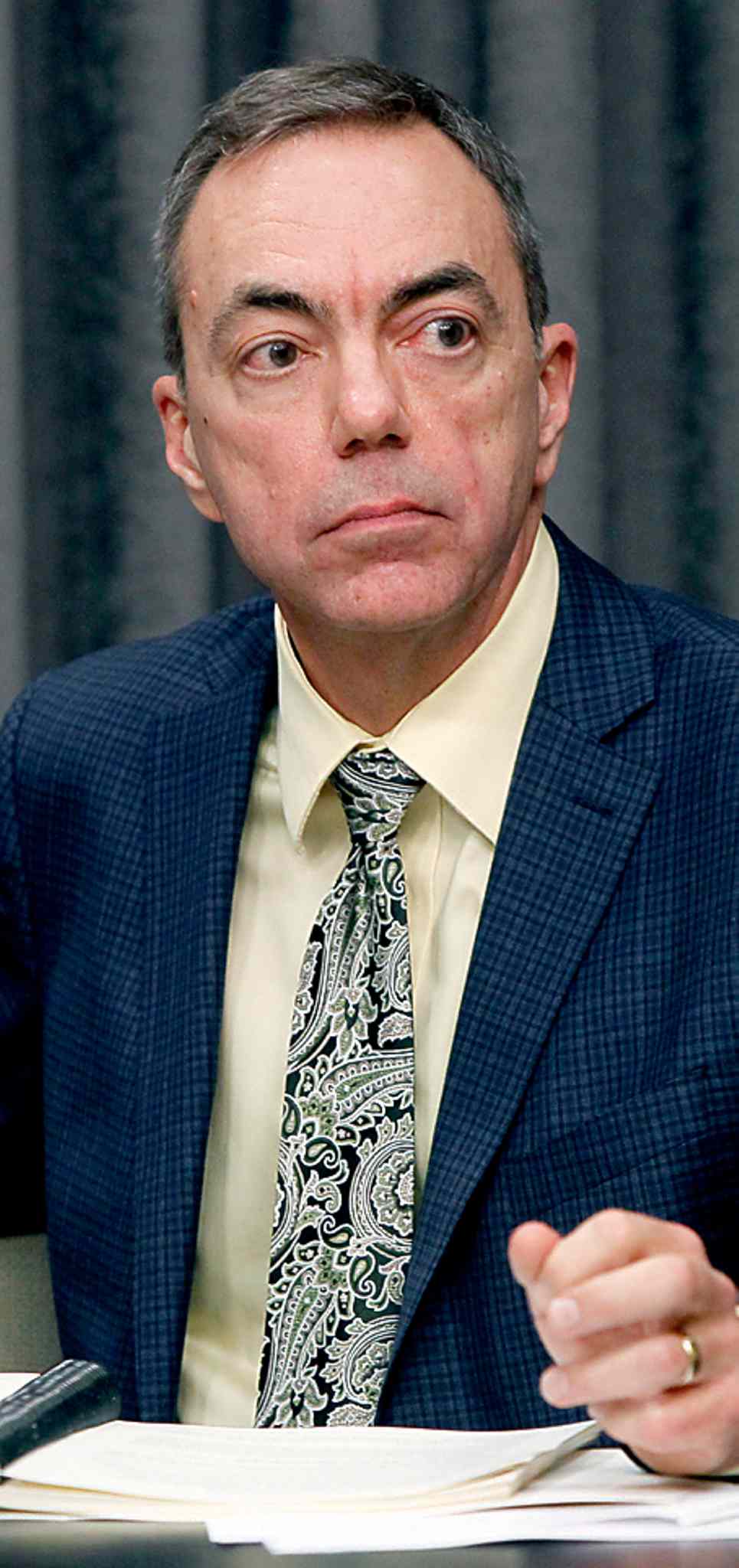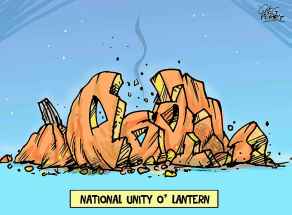Tories play politics with rainy day fund
Read this article for free:
or
Already have an account? Log in here »
To continue reading, please subscribe:
Monthly Digital Subscription
$0 for the first 4 weeks*
- Enjoy unlimited reading on winnipegfreepress.com
- Read the E-Edition, our digital replica newspaper
- Access News Break, our award-winning app
- Play interactive puzzles
*No charge for 4 weeks then price increases to the regular rate of $19.00 plus GST every four weeks. Offer available to new and qualified returning subscribers only. Cancel any time.
Monthly Digital Subscription
$4.75/week*
- Enjoy unlimited reading on winnipegfreepress.com
- Read the E-Edition, our digital replica newspaper
- Access News Break, our award-winning app
- Play interactive puzzles
*Billed as $19 plus GST every four weeks. Cancel any time.
To continue reading, please subscribe:
Add Free Press access to your Brandon Sun subscription for only an additional
$1 for the first 4 weeks*
*Your next subscription payment will increase by $1.00 and you will be charged $16.99 plus GST for four weeks. After four weeks, your payment will increase to $23.99 plus GST every four weeks.
Read unlimited articles for free today:
or
Already have an account? Log in here »
Hey there, time traveller!
This article was published 31/10/2019 (2233 days ago), so information in it may no longer be current.
Upon the retirement of a long-serving employee, it’s not unusual for co-workers and the employer to offer a parting gift. Less typical is the retiree giving their former employer a gift. But that’s sort of what Auditor General Norm Ricard has in mind for the Progressive Conservative government of Manitoba.
Having announced his intention to retire in the new year, Ricard has one more annual report to deliver to the legislature before the end of this year. The report will likely repeat concerns Ricard has about the political decision to exclude from summary reporting the Workers Compensation Board and Manitoba Agricultural Services Corp. Those exclusions have prevented the auditor from signing off on the province’s public accounts for two consecutive years.
However, in a recent interview, Ricard said he will also use that report to tackle the complex issue of the Fiscal Stabilization Account, the so-called “rainy day fund.”

In September, Finance Minister Scott Fielding announced that due to budget savings over the past three years, he would make a $407-million “transfer” to the fund, bringing the total to $572 million. Fielding said this account will be used to protect the government against future natural disasters.
“Taking this year’s savings and putting them into the rainy day fund is responsible fiscal management and it will help protect Manitobans for unseen emergency expenses down the road,” Fielding said.
That comment caught Ricard’s eye and prompted him to include a separate section on the fund in his upcoming annual report. Ricard declined to get into specifics but did acknowledge the minister’s comments may have created some “confusion” about the nature of the fund and how it is recorded in the province’s books.
“With respect to the (fund), all that I am prepared to comment on at this time is that the ‘transfer’ had no impact on the reported deficit in the summary financial statements,” Ricard said in an email statement provided after the interview. “Given the public comments by the minister and the likely confusion by the public on what the (fund) represents, I will be including in a December RTL a comprehensive discussion on the (fund).”
Ricard declined to get into specifics but did acknowledge the minister’s comments may have created some “confusion” about the nature of the fund and how it is recorded in the province’s books.
Ricard’s comments, limited as they are at this point, speak volumes about the intersection of politics and accounting, particularly his decision to put the word transfer in quotation marks.
Be warned: the accounting behind the fund is complex enough to drive the average citizen into a deep coma.
A spokesman for Fielding said the money used for the transfer came from the “cash and cash equivalents” line of the summary statement and the assets are being held in an investment portfolio of government bonds.
However, in his limited comments, Ricard made a point of noting that the “transfer” did not affect the deficit for 2018-19 as reported in the annual public accounts. That means while the fund money may have moved from one line to another in the summary statement, there is no evidence that the province is $400 million richer.
That bears repeating. “Transferring” the money to the fund did not increase this year’s deficit. Following the same logic, if the money were “transferred” back, it would not reduce the deficit or offset unexpected expenditures.
All of which prompts the question: is there really an extra $400 million lying around in a separate account waiting to be used to fight spring floods? No, not really.

The “rainy day fund” was created as part of balanced-budget legislation in the mid 1990s, when government calculated its budget balance only on tax-supported core programs delivered directly by government. Core reporting excludes all of the assets and liabilities of Crown corporations and other so-called government reporting entities. Summary financial reporting, the standard used now, includes all revenues, expenditures, assets and liabilities for all of government, with only a few exceptions.
Previous auditors general have characterized the fund as more of a political gimmick than a viable tool of public-sector accounting. And now that summary reporting is the standard for provincial governments, it’s much harder to use a political sleight of hand to manipulate the financial statements. Not that the political masters of the annual budget aren’t trying.
While the arcane nature of the fund is only truly understood by auditors general, the political strategy behind the “transfer” seems to be pretty clear.
Despite winning a second majority in the September election, Premier Brian Pallister continues to rage against allegations he and his government are hard-hearted, austerity-obsessed bean counters. In that context, the fund “transfer” becomes an important counterpoint to the austerity attack.
Yes, the Tory government has funded health care and public education at annual rates well below the combined impact of inflation and population growth. But on the other hand, the government has created a $500-million nest egg to cover future natural disasters.
It is hard to imagine that Ricard’s report to the legislature later this year will contain bombshell revelations. Auditors general are notoriously sober in their language and cautious in their approach to discussing government policy.
And the subject matter is pretty dry. If you’ve read this far in the column, you are either an accountant or you need to get out of the house more often.
Still, even as he prepares to leave public service, Ricard will likely underline an important and enduring reality of government accounting.
Even with the dogged oversight of auditors and the adoption of more comprehensive and objective accounting practices, political leaders still have a lot of control over how public finances are reported. And they are prepared to use it.
dan.lett@freepress.mb.ca

Born and raised in and around Toronto, Dan Lett came to Winnipeg in 1986, less than a year out of journalism school with a lifelong dream to be a newspaper reporter.
Our newsroom depends on a growing audience of readers to power our journalism. If you are not a paid reader, please consider becoming a subscriber.
Our newsroom depends on its audience of readers to power our journalism. Thank you for your support.











